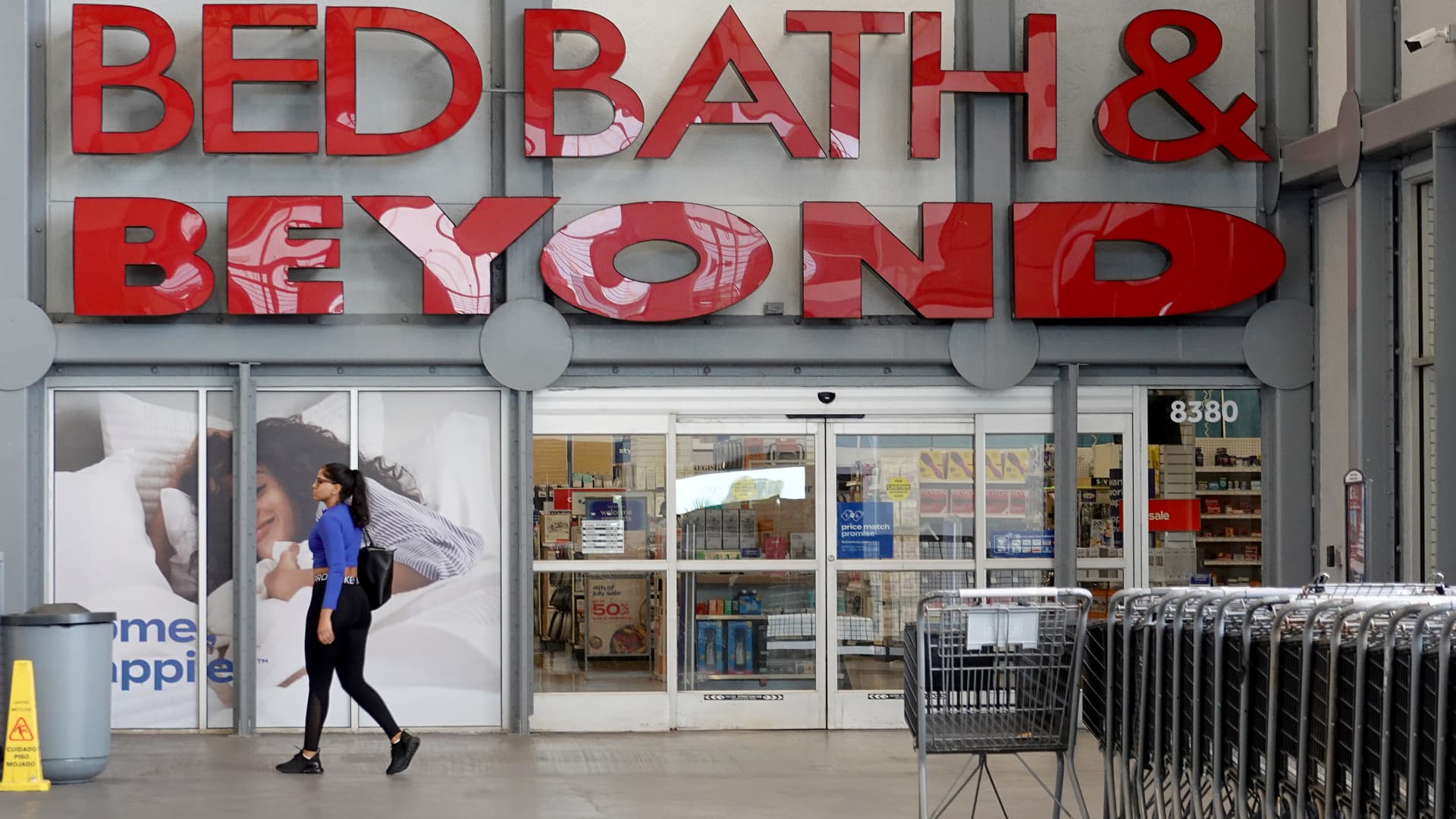Bed Bath & Beyond warned Thursday it’s running out of cash and is considering bankruptcy.
The retailer, citing worse-than-expected sales, issued a “going concern” warning that in the upcoming months it likely will not have the cash to cover expenses, such as lease agreements or payments to suppliers. Bed Bath said it is exploring financial options, such as restructuring, seeking additional capital or selling assets, in addition to a potential bankruptcy.
Shares of the company fell about 30% to close the day at $1.69 after Bed Bath issued the updates in a pair of financial filings. The stock earlier touched a 52-week low earlier in the day. Its market value has fallen to about $149 million as of Thursday’s close.
Still, CEO Sue Gove said the retailer is focused on rebuilding the business and making sure its brands, Bed Bath & Beyond, Buybuy Baby and Harmon, “remain destinations of choice for customers well into the future.”
Among its challenges, Bed Bath said it is having trouble getting enough merchandise to fill its shelves and is drawing fewer customers to its stores and website.
The retailer also said it wasn’t able to refinance a portion of its debt, less than a month after notifying investors it planned to borrow more in order to pay off chunks of existing obligations.
Bed Bath’s debt load has been weighing on the company. The retailer has nearly $1.2 billion in unsecured notes, which have maturity dates spread across 2024, 2034 and 2044. In recent quarters, Bed Bath has warned it’s been quickly burning through cash.
Bed Bath’s notes have all been trading below par, a sign of financial distress.
Stalled turnaround
Bed Bath has been through an especially tumultuous stretch, with the departure of its CEO and other top executives, companywide layoffs, store closures and an overhaul of its merchandise strategy. As sales declined, its CEO Mark Tritton got pushed out in June. Gove, who stepped in as interim CEO, has assumed the role permanently.
She laid out a comeback strategy in late August. As part of the plan, she said the company would cut costs by shrinking its store footprint and workforce. Gove said it would add back more items from popular national brands, as it shifted away from an aggressive private label strategy. And she said it had secured more than $500 million in new financing to help steady the business.
The company said during its last earnings report it believed it had enough liquidity to forge ahead.
In a news release Thursday, Gove said recent sales results illustrate why that turnaround plan is so important.
“Transforming an organization of our size and scale requires time, and we anticipate that each coming quarter will build on our progress,” she said.
The company is also looking for a chief financial officer after executive Gustavo Arnal died by suicide in September.
If you are having suicidal thoughts, contact the Suicide & Crisis Lifeline at 988 for support and assistance from a trained counselor.
Mounting losses
So far, Bed Bath has not seen its sales trends change. Net sales in the fiscal third quarter, which ended Nov. 26, are expected to be about $1.26 billion — a sharp drop from $1.88 billion in the year-ago period, the company said.
It anticipates a net loss of about $385.8 million for the third quarter, a nearly 40% jump in losses year over year. The quarterly losses include an approximately $100 million impairment charge, which was not specified.
The company is scheduled to deliver full quarterly results and hold an earnings call on Tuesday.
Signs of Bed Bath’s financial stress have shown up on store shelves, too. As the retailer’s cash hoards dwindle, some suppliers aren’t willing to ship large quantities of merchandise — or in some cases, any merchandise — to the company.
Gove said in a news release that reduced credit limits mean customers are seeing emptier shelves and less variety than they expect. She said the company is using the money it’s made over the holiday season to pay vendors and order more inventory.
“We have seen trends improve when in-stock levels have increased,” she said.
Bed Bath already has a history of strained relationships with key national brands, such as Dyson, Keurig and Cuisinart. During previous holiday seasons, Bed Bath didn’t have popular gift items, such as KitchenAid’s stand mixers. Meanwhile, those items were plentiful at competitors like Target.

